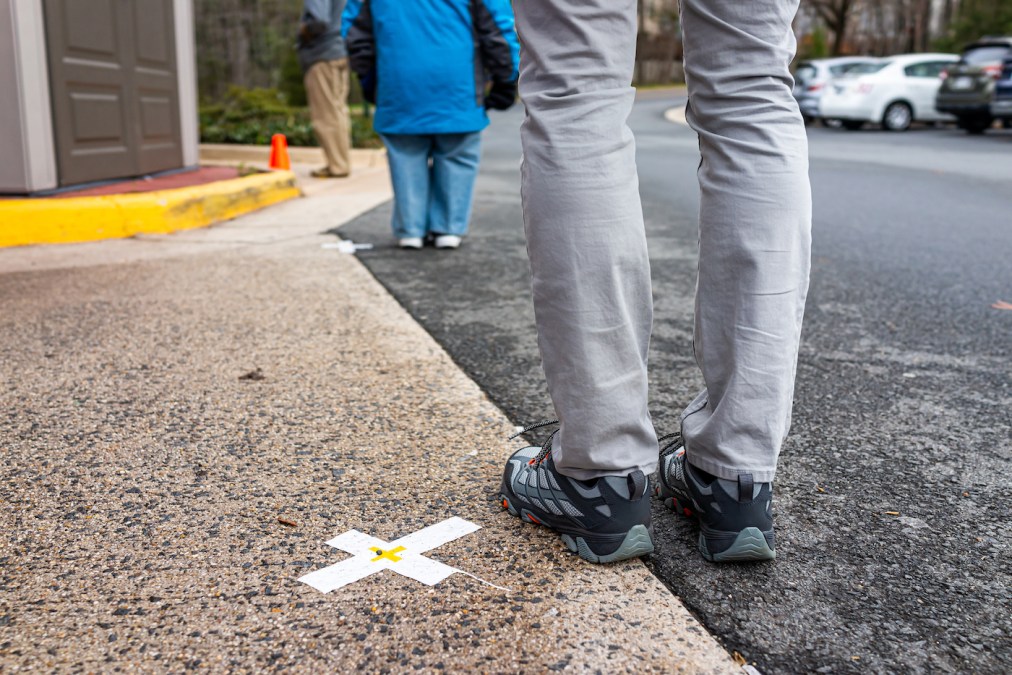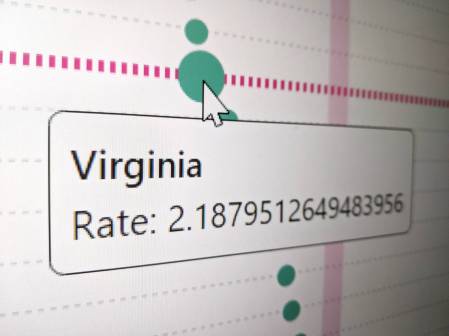Virginia launches digital tools to aid communities’ COVID-19 response

To support communities hit hard by the coronavirus pandemic, Virginia Gov. Ralph Northam announced last week he’s expanding two statewide data analysis platforms dedicated to helping people find jobs and helping municipalities understand where to allocate medical resources to slow the spread of COVID-19.
Virginia residents who are looking for work during the economic downturn caused by the pandemic will have access to a new suite of career-assistance portals, called the Virginia Career Works Referral Portal and the Virginia Career Works Dashboard. The dashboard allows employers, job-seekers or students to easily post or find jobs according to their needs, while the referral portal will automatically connect users with specific job-training or unemployment assistance, rather than users having to seek out specific agencies.
Virginia Chief Data Officer Carlos Rivero said the state will also expand the cloud-based tool it uses to share data on opioid incidents, called the Framework for Addiction Analysis and Community Transformation, or FAACT platform, to account for coronavirus cases. The tool was developed in 2018 to help communities track where and when people were overdosing on opioids and to share that data with the state.
Rivero told StateScoop the FAACT platform has been hugely beneficial for local police departments and health organizations that have been able to prepare for opioid spikes based on data trends identified by the platform, like how old first-time users are or which days of the week people are more likely to overdose. Though the platform is partially managed by the state, Rivero said it’s more likely that communities will be the ones to benefit from the coronavirus-data collection. Data on the number of beds, ventilators, pharmaceuticals and other supplies per hospital will be updated frequently on the platform — in some cases as often as every 15 minutes, according to the state.
“I think that’s one of the most innovative things about this project, is that it’s focused at the community level,” Rivero said. “Had we not previously had the technical, legal and governance infrastructure in place through FAACT and the corresponding Commonwealth Data Trust, the expansion that took us just days to complete would have taken months. We were prepared and that preparation allowed us to best support our constituents and communities during a time when it’s needed the most.”
For jobless Virginians, it’s never been easier to acquire job-training or assistance from the state, Rivero said. Previously, when a person wanted to apply for a skills certification or assistance from the state, they had to schedule a meeting with an agent at a career services center. The person would then have to follow up with a representative of the agencies that he or she is seeking assistance from, putting the onus of getting help on the person, not the state. The referral portal aims to change that, Rivero said, by automatically connecting people with the agencies that can help them.
“No longer are you required to go find people and make appointments and figure things out,” Rivero said. “You as a potential service recipient can come to one place and say, ‘I need help.’”
From each person who requests assistance, the portal collects data, like registration dates and what services they asked for, so that Rivero and his colleagues can track how quickly resources are being distributed and where they’re going. The other tool, a data-visualization dashboard developed by the state and the data analytics company Qlarion, shows employers and agencies how employment is trending in different industries, both regionally and statewide. The tools were already being developed before the coronavirus pandemic hit, but development was accelerated to accommodate the influx in unemployed people, Northam said.
Northam and Rivero are also planning to improve Virginia’s data transparency through the full release of the state’s first open-data portal in July. The portal is available now with a limited number of datasets on opioid addiction and COVID-19 response, but will be filled out with data on the commonwealth’s economy, environment, emergency management, education and other topics.





